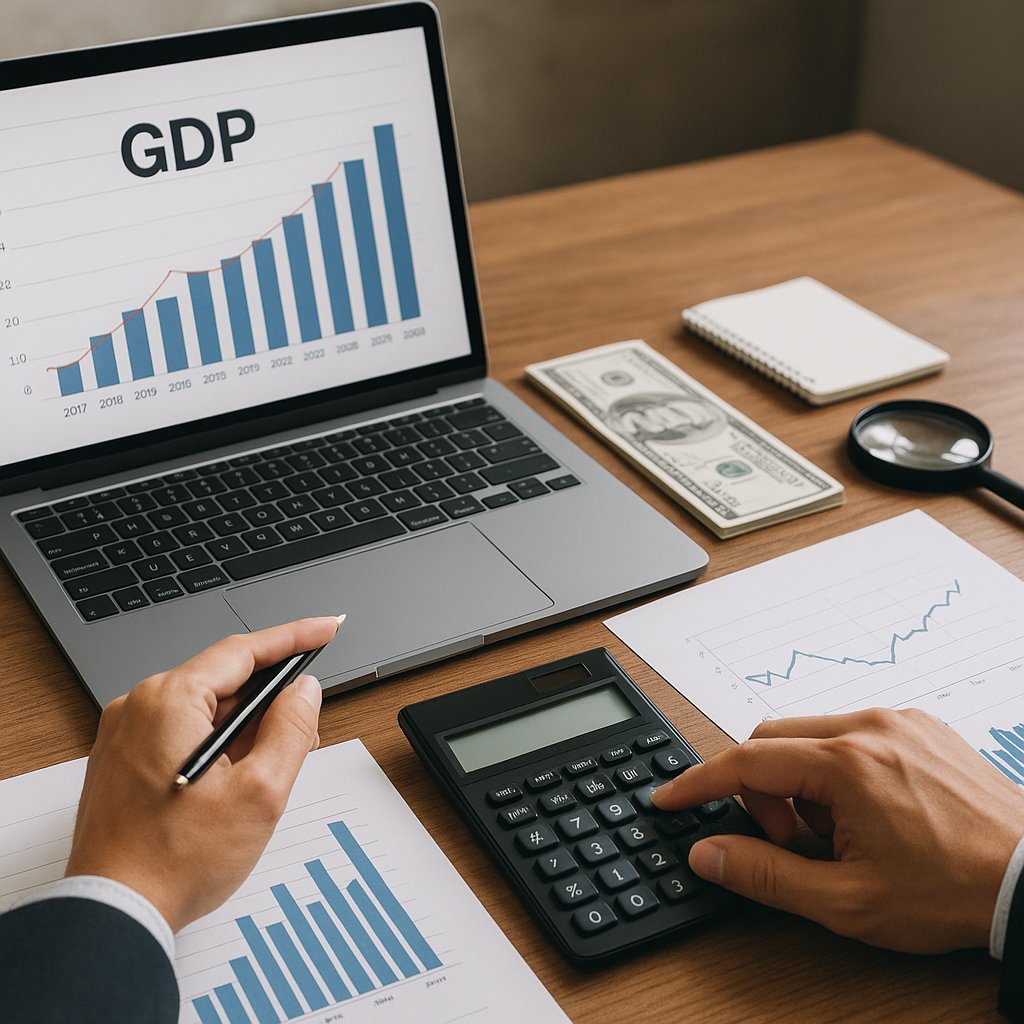Understanding what drives currency value is crucial for anyone involved in currency investing. The foreign exchange market, or Forex, is the largest and most liquid financial market in the world, with daily trading volumes exceeding $6 trillion. This article delves into the key factors that influence currency value, providing investors with the knowledge they need to make informed decisions.
Economic Indicators
Economic indicators are among the most significant factors affecting currency value. These indicators provide insights into a country’s economic health and can influence investor sentiment. Some of the most important economic indicators include:
Gross Domestic Product (GDP)
GDP measures the total value of goods and services produced within a country over a specific period. A growing GDP indicates a healthy economy, which can attract foreign investment and increase demand for the country’s currency. Conversely, a declining GDP can lead to a decrease in currency value as investors seek more stable opportunities elsewhere.
Inflation Rates
Inflation is the rate at which the general level of prices for goods and services rises, eroding purchasing power. Central banks often adjust interest rates to control inflation. Higher inflation typically leads to higher interest rates, which can attract foreign capital and boost currency value. However, if inflation is too high, it can have the opposite effect, causing the currency to depreciate.
Employment Data
Employment statistics, such as the unemployment rate and non-farm payrolls, provide insights into the labor market’s health. A low unemployment rate suggests a robust economy, which can strengthen the currency. On the other hand, high unemployment can signal economic trouble, leading to a weaker currency.
Political Stability and Performance
Political factors play a crucial role in determining currency value. Investors prefer stable political environments as they reduce the risk of sudden policy changes that could negatively impact the economy. Key political factors include:
Government Stability
A stable government with consistent policies can foster economic growth and attract foreign investment, boosting currency value. Political instability, such as frequent changes in leadership or civil unrest, can create uncertainty and deter investment, leading to a weaker currency.
Fiscal and Monetary Policy
Government fiscal policies, including taxation and spending, can influence economic performance and currency value. Similarly, central banks’ monetary policies, such as interest rate adjustments and quantitative easing, directly impact currency value. For example, higher interest rates can attract foreign capital, increasing demand for the currency and driving up its value.
Geopolitical Events
Geopolitical events, such as wars, trade disputes, and international sanctions, can significantly impact currency value. These events can create uncertainty and volatility in the Forex market, leading investors to seek safer assets. For instance, during times of geopolitical tension, investors often flock to safe-haven currencies like the US dollar or Swiss franc, driving up their value.
Market Sentiment and Speculation
Market sentiment and speculation are powerful forces in the Forex market. Traders’ perceptions and expectations can drive currency value, sometimes independently of fundamental economic factors. Key aspects of market sentiment and speculation include:
Risk Appetite
Risk appetite refers to investors’ willingness to take on risk. When risk appetite is high, investors are more likely to invest in higher-yielding, riskier currencies. Conversely, when risk appetite is low, investors seek safer assets, such as government bonds or safe-haven currencies. Changes in risk appetite can lead to significant currency value fluctuations.
Technical Analysis
Technical analysis involves using historical price data and chart patterns to predict future currency movements. Traders often rely on technical indicators, such as moving averages, relative strength index (RSI), and Fibonacci retracements, to make trading decisions. While technical analysis does not consider fundamental factors, it can influence market sentiment and drive currency value.
Speculative Trading
Speculative trading involves buying and selling currencies to profit from short-term price movements. Speculators, including hedge funds and individual traders, can create significant volatility in the Forex market. Large speculative positions can drive currency value up or down, sometimes leading to sharp and sudden price movements.
Global Trade and Investment Flows
Global trade and investment flows are critical factors influencing currency value. The balance of trade and capital flows between countries can impact currency demand and supply. Key aspects include:
Trade Balance
The trade balance measures the difference between a country’s exports and imports. A trade surplus, where exports exceed imports, can increase demand for the country’s currency, driving up its value. Conversely, a trade deficit, where imports exceed exports, can lead to a weaker currency as more of the currency is sold to pay for foreign goods and services.
Foreign Direct Investment (FDI)
FDI involves long-term investments by foreign entities in a country’s economy, such as building factories or acquiring businesses. High levels of FDI can boost currency value as foreign investors need to purchase the local currency to make investments. Conversely, low levels of FDI can lead to a weaker currency.
Portfolio Investment
Portfolio investment includes investments in financial assets, such as stocks and bonds, by foreign investors. Similar to FDI, high levels of portfolio investment can increase demand for the local currency, driving up its value. Conversely, capital outflows, where investors sell local assets and repatriate funds, can weaken the currency.
Conclusion
Understanding the factors that drive currency value is essential for successful currency investing. Economic indicators, political stability, market sentiment, and global trade and investment flows all play crucial roles in determining currency value. By closely monitoring these factors, investors can make informed decisions and navigate the complexities of the Forex market. While no single factor can predict currency movements with certainty, a comprehensive understanding of these key drivers can provide valuable insights and enhance investment strategies.




